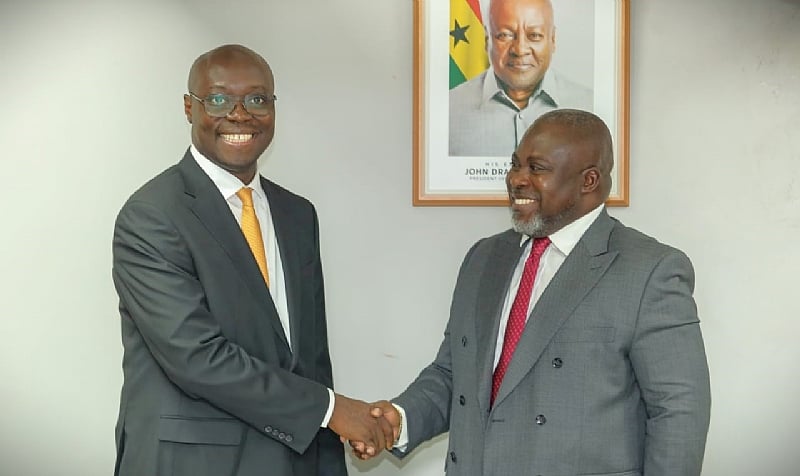Ghana’s newly appointed Finance Minister, Dr. Cassiel Ato Baah Forson, has issued a clarion call to the Ghana Revenue Authority (GRA) to significantly ramp up domestic revenue mobilization. This directive comes as Ghana grapples with a challenging economic landscape, marked by limited access to international capital markets and a pressing need to address its recurrent debt burden. Dr. Forson emphasized the urgency of the situation during a working visit to the GRA, stressing that enhanced revenue collection is crucial for the nation’s economic recovery and stability. The Minister’s message underscores the government’s commitment to fiscal responsibility and its recognition that domestic resource mobilization is paramount given the constraints on external borrowing.
Dr. Forson’s appeal to the GRA is not merely a request but a critical directive, reflecting the government’s understanding of the dire economic straits the country faces. Locked out of the international bond market and facing limited access to commercial loans, Ghana finds itself increasingly reliant on domestic resources to fund its development agenda. The Minister explicitly stated that the traditional avenues for raising capital, such as Eurobonds, commercial bank loans, and even domestic bond markets, are currently inaccessible. This leaves the government with limited options: short-term Treasury bills (T-bills) and multilateral loans, neither of which are sustainable long-term solutions. Therefore, the GRA’s role in boosting domestic revenue collection has become not just important but essential for the nation’s economic survival.
While acknowledging the GRA’s success in exceeding its revenue target for 2024, Dr. Forson stressed the need to surpass those achievements in 2025. He challenged the Authority to explore innovative strategies to generate an additional 0.6 percent of GDP as tax revenue, placing particular emphasis on the Customs Division’s performance. This ambitious target reflects the government’s determination to reduce its reliance on borrowing and establish a more sustainable fiscal foundation. The Minister’s call for innovation signals a shift away from traditional revenue collection methods and a willingness to explore new approaches to maximize domestic resource mobilization.
The Finance Minister’s visit to the GRA was not a solo endeavor; he was accompanied by key figures in the government, including Mr. Fiifi Fiavi Kwetey, General Secretary of the ruling National Democratic Congress (NDC), and Ms. Eva Esselba Mends, Chief Director of the Ministry of Finance. This high-level delegation underscores the importance the government places on the GRA’s role in the nation’s economic recovery. Mr. Kwetey, a former Deputy Minister of Finance, echoed Dr. Forson’s sentiments, urging the GRA to redouble its revenue mobilization efforts. He emphasized that revenue is the “lifeline” of any country, and for Ghana, it is now more critical than ever to bolster domestic revenue to meet its obligations to its citizens.
Mr. Anthony Kwasi Sarpong, the Acting Commissioner-General of the GRA, acknowledged the challenging nature of the task ahead but expressed his commitment to a people-centred approach. He pledged to foster a collaborative environment within the GRA, emphasizing teamwork and a focus on the progress, growth, and welfare of the people. This approach suggests a move towards a more inclusive and transparent revenue collection system, one that prioritizes the well-being of citizens while striving to achieve the necessary revenue targets. Mr. Sarpong’s statement reflects a recognition that successful revenue mobilization requires not just efficient systems but also the trust and cooperation of the public.
The overarching message from the Finance Minister’s visit to the GRA is clear: increased domestic revenue mobilization is not just a desirable outcome, but a critical necessity for Ghana’s economic recovery. The country’s limited access to external financing options leaves it with little choice but to prioritize internal revenue generation. This requires not just improved efficiency within the GRA but also a broader shift in mindset, recognizing the crucial role of domestic resources in achieving sustainable economic growth and development. The emphasis on innovation, collaboration, and a people-centred approach suggests a move towards a more modern and effective revenue collection system, one that is better equipped to meet the challenges facing Ghana’s economy. The success of these efforts will ultimately determine the nation’s ability to navigate its current economic difficulties and build a more prosperous future.














